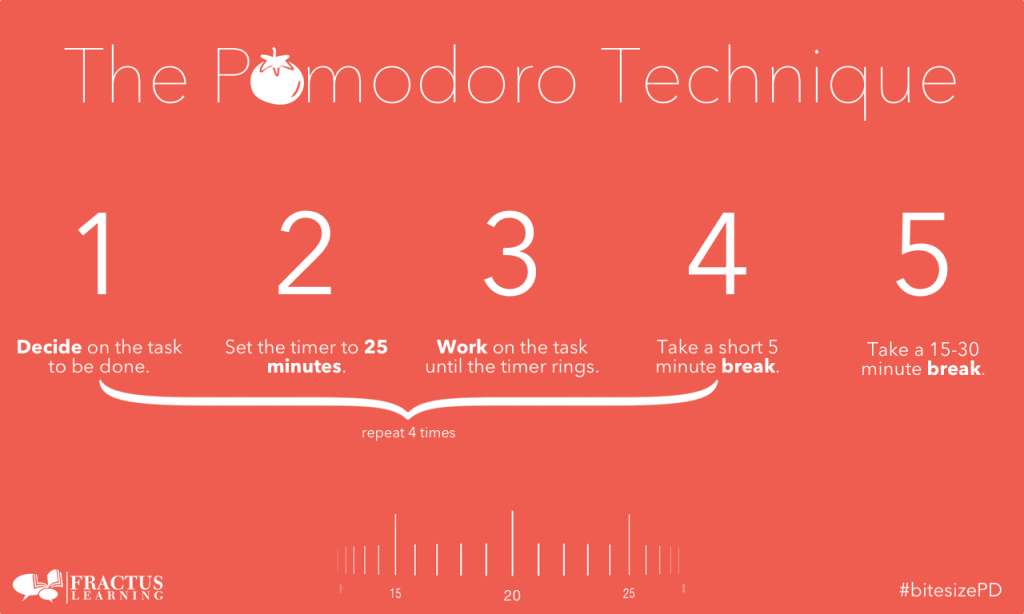The study isn't just for the night before an assignment's due or the night before an exam.
It's never too early – or too late – to develop good study habits. The sooner you get into a good study groove, the easier everything will be, and the more your chances of getting good marks will improve.
Here are our top tips for getting the most out of studying.
REVISE STUDIED CONTENT EARLIER

You will study better and more effectively if you revise every new concept immediately after learning it, as opposed to revisiting it on the eve of the exam. Studies suggest that you stand a better chance of retaining new information when you review new information closer to the day you learned it than closer to the day when you are needed to put that information to use, say in an exam or interview room.
EXERCISE BEFORE SETTLING DOWN TO STUDY
Exercising for at least 30 minutes every day improves your brain function and overall health. It improves your heart rate and feeds your brain with important nutrients that consequently increase your attention rate, and memory retention rate, and amp your problem-solving abilities. Make a habit of running, biking, or walking for at least 30 minutes before you sit down to study.
SELF-ASSESSMENT IS KEY

If you are in the coaching business, for example, you need to self-assess yourself regularly to not only know whether your career is on the right course but to also know whether you are equipped with the core coaching competencies. You don’t have to be studying for an exam. It could be that you just read up on how to have strong verbal communication skills or how to listen and give creative solutions for different clients’ problems. The new knowledge will stick if you assess your performance continuously and in a wide range of scenarios.
INTERVAL STUDYING

Trying to cram an entire topic within a day will in most cases lead to frustrations, depression, and many other mental problems that come with fatigue and sleeplessness. Let’s face it: It is not humanly possible to learn hundreds of new concepts in one sitting. If you want to remember most of the new information you learn, it is best to divide the information into small, digestible chunks and then familiarize yourself with one chunk at a time. You will not feel overwhelmed.
TEST YOUR MEMORY BY REWRITING WHAT YOU’VE LEARNED

Without prior planning, take out a blank sheet of paper and a pen and try to write short notes about a new topic you studied without referring to an external source. Ensure that everything you write on that paper comes from your internal memory. That act of retrieving information from your brain helps you remember more of it and in case you’ve forgotten important bits, you can note the areas that you need to rework before D-Day.
SLEEP WELL AFTER STUDYING

A good night’s sleep is necessary for a healthy brain. We do most of our learning during the day, but it is when we sleep that our memories stabilize concerning the new information we consume during the day. Studies say that being awake for more than 12 hours after learning something new increases your chances of forgetting most of the content you learned.
TAKING BREAKS IS OF PARAMOUNT IMPORTANCE

Overworking and stressing your brain just because you have an exam tomorrow will do your memory more damage than good. The effectiveness of your cognitive abilities is tied to the breaks you take within an hour of intense study.
DON’T JUST READ CONTENT OVER AND OVER AGAIN

Reading the same content a million times leads to confusion. It messes with your ability to remember and process new information. Occasionally, close your eyes and try to remember what you read an hour ago instead of rushing back to read your notes again.
LEARN WITH THE AIM OF TEACHING

If you know that whatever you learn today will help you become an authoritative source of information tomorrow, your brain can organize information more logically and memorably.
PREPARE FOR WHAT IS TO COME
Knowing what you are up against helps you prepare sufficiently and study for the relevant content only. It is easier to retrieve important information in an exam room if you focused all your mental resources on studying for that one test, as opposed to when you studied unwanted content within the main topic.
Now, Come up with Your Strategies

These tips are only some of the things you can do to get the most out of your studying. You might already have other things that work better for you. Find out what your friends do when they're studying. Maybe your teachers have some good recommendations too.
Whatever it is, whatever strategy you come up with, when you find something that works for you, put it into practice and go for it!



You must be logged in to post a comment.